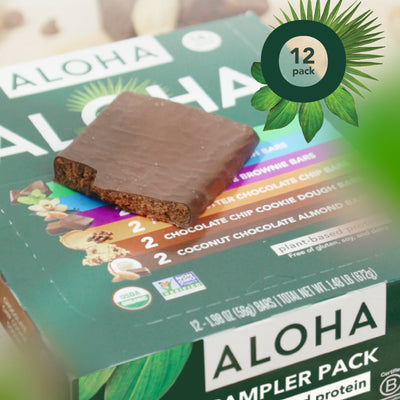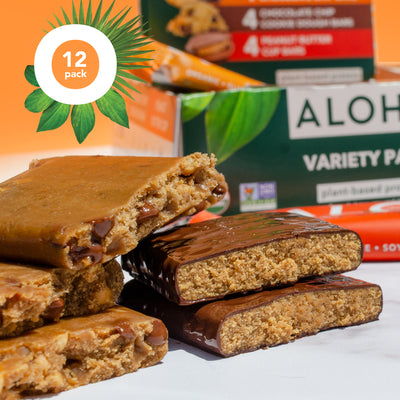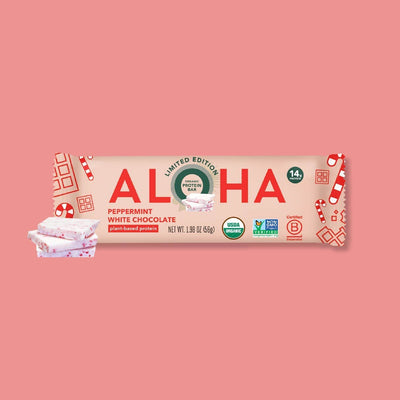Growing your own food are has become an increasingly popular trend in recent years. With the rise of the farm-to-table movement and the growing concern about the environmental impact of industrial agriculture, more and more people are discovering the joys and benefits of growing their own vegetables, fruits, and herbs.
Growing your own food can also be an incredibly rewarding experience. Not only does it allow you to eat fresh, healthy produce, but it can support your mental health by reducing stress and anxiety and boosting your mood. It can also save you money in the long run.
If you're interested in starting your own garden but don't know where to begin, a vegan garden can be a great choice. In this article, we'll explore the benefits of growing your own food and provide tips on how to start a vegan garden for beginners.

What Are the Benefits of Growing Your Own Food?
There are many benefits of growing your own food including how it can support your physical health, mental health, environment, and financial savings.
1. You can eat healthier
When you grow your own food, you're in control and know exactly where it comes from and what has been used to grow it. You can control the...
• Quality of the soil
• Use of pesticides
• Types of fertilizers
You can even make sure to plant an organic garden so you can get more vitamins, minerals, and antioxidants in your diet. You can harvest your produce at the peak of freshness.

2. Growing your own food can be cheaper
One of the most common questions people have about growing your own food is whether it's cheaper than buying it from the grocery store. While there are some upfront costs associated with starting a garden (such as seeds, soil, and tools), growing your own food can be cheaper in the long run.
According to a study by the National Gardening Association, the average cost to start a vegetable garden is $70, while the average savings on groceries for a family of four is $600 per year. That means that in just one year, you could recoup your initial investment and start saving money.
To keep costs low, it's important to choose plants that are well-suited to your climate and soil type. You can also save money by using recycled materials for containers and garden beds, and by starting small.
You also save money on transportation costs, since your food doesn't have to travel from the farm to the store to your home.

3. You can better you mental health by connecting with nature
The benefits of getting outside in nature daily are endless...
• Can reduce stress and anxiety
• May boost mood
• Supports mindfulness
• Supports self-esteem
Can Reduce Stress and Anxiety
Studies have shown that spending time in nature can help to reduce stress and anxiety levels. Gardening can be a form of therapy and a way to escape from the pressures of daily life.
May Boost Mood
Gardening can also help to boost your mood by increasing levels of serotonin and dopamine, which are neurotransmitters that play a role in regulating mood. Being outside in the sun and fresh air can also help to increase vitamin D levels, which has been linked to improved mood.

Supports Mindfulness
Gardening can be a meditative activity that encourages mindfulness and being present in the moment. Focusing on caring for plants and observing their growth can help to quiet the mind and reduce negative thoughts.
Supports Self-Esteem
Gardening can also improve self-esteem by providing a sense of accomplishment and pride in growing your own food or beautiful plants. This can also help to increase feelings of confidence and independence.
4. You can reduce your environmental impact.
When you grow your own food, you reduce your environmental impact significantly by:
• Reducing food miles
• Reducing waste
• Conserving water
• Promoting biodiversity
Reducing Food Miles
When you grow your own food, you eliminate the need for transportation and distribution, which reduces greenhouse gas emissions from transportation. Additionally, the carbon footprint associated with producing and transporting food is also reduced.
Reducing Waste
When you grow your own food, you can harvest only what you need, reducing food waste. Additionally, you can compost food scraps and yard waste to create nutrient-rich soil for your garden, reducing the amount of waste that goes to landfills.

Conserving Water
Commercial agriculture is a major consumer of water resources. When you grow your own food, you can use water more efficiently by using techniques such as drip irrigation and rainwater harvesting. You can also choose drought-tolerant plants that require less water.
Promoting Biodiversity
When you grow your own food, you can choose to grow a variety of fruits and vegetables that are adapted to your local climate and soil conditions. This promotes biodiversity and reduces the need for monoculture farming, which can deplete soil nutrients and increase the risk of crop diseases and pests. By growing your own food, you can make a positive impact on the environment and reduce your carbon footprint.
How To Start a Vegan Garden for Beginners
Now that you know the benefits of growing your own garden, you've decided to start your own vegan garden - congratulations! Growing your own fruits and vegetables is a great way to ensure that you're eating fresh, nutritious food that's free of harmful chemicals and pesticides. But if you're new to gardening, getting started can feel a bit overwhelming. Here are some tips to help you start your vegan garden with confidence:

1. Choose the Right Location
The first thing you'll need to do is choose the right location for your garden. Look for a spot in your yard that gets plenty of sunlight throughout the day. Most vegetables need at least six hours of direct sunlight each day to thrive, so make sure your chosen location meets this requirement.
2. Prepare the Soil
Once you've chosen your location, it's time to prepare the soil. If you're starting from scratch, you'll need to remove any grass or weeds from the area where you'll be planting. Then, dig down about six inches and loosen the soil with a garden fork or tiller. Add some compost or other organic matter to the soil to help it retain moisture and nutrients.
3. Choose Your Plants: What is the Easiest Food to Grow?
Now comes the fun part - choosing your plants! As a vegan gardener, you'll want to focus on growing fruits and vegetables that are rich in nutrients and easy to care for. If you're new to gardening, it's important to start with plants that are easy to grow and maintain. Some great options include:
• Tomatoes
• Zucchini
• Lettuce
• Cucumber
• Carrots
• Pumpkins
• Peppers
• Peas
• Beans
• Basil
• Parsley

4. Start Planting
Once you've chosen your plants, it's time to start planting. Follow the instructions on the seed packets or plant labels to determine the proper spacing and depth for each plant. As a general rule, most plants should be planted about 18 inches apart to allow for proper growth and air circulation.
5. Maintain Your Garden
Once your garden is planted, it's important to maintain it properly. This means watering your plants regularly, pulling any weeds that pop up, and adding fertilizer or compost as needed. You should also keep an eye out for pests and diseases that could damage your plants and take action to prevent or treat them as necessary.
Starting a vegan garden may seem daunting at first, but with a little bit of planning and effort, you can create a thriving garden that provides you with fresh, nutritious food all season long. So, get out there and start digging - your taste buds (and the planet) will thank you!
Harvest Your Health with a Vegan Garden
Growing your own food in a vegan garden is a fun, fulfilling, and sustainable way to ensure that you have access to fresh, healthy produce while also benefiting your finances, physical and mental health, your community, and the environment. Whether you have a small balcony or a large backyard, consider starting your own vegan garden and reap these benefits for yourself and those around you.
If you're following a vegan diet, it's important to make sure you're getting enough protein. Fortunately, there are many plant-based proteins that are easy to grow in a garden, including pumpkin seed and pea protein. You can find a nutrient-dense protein blend in ALOHA's vegan chocolate protein powder.











